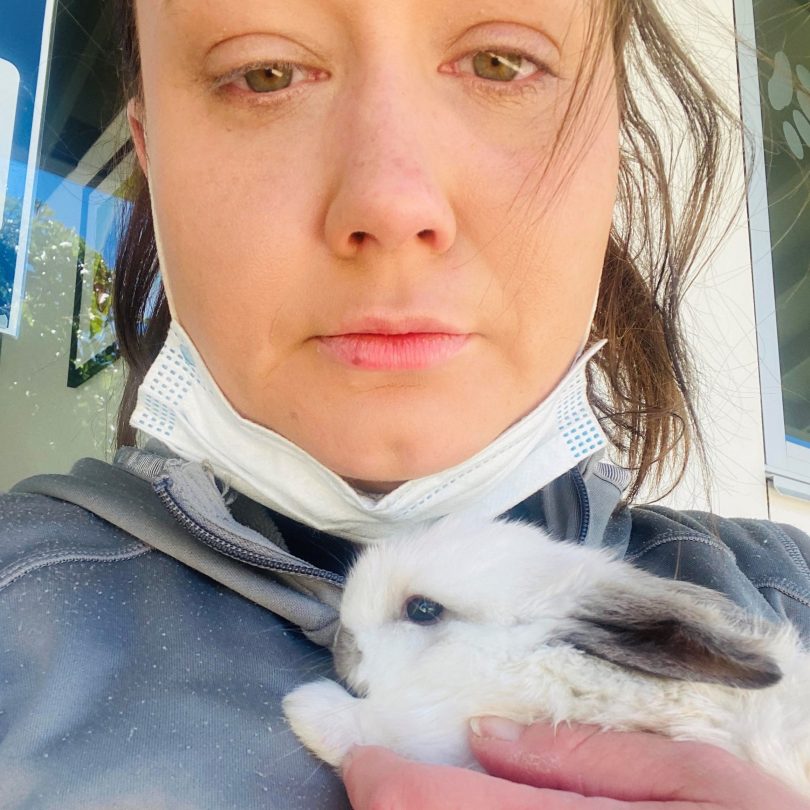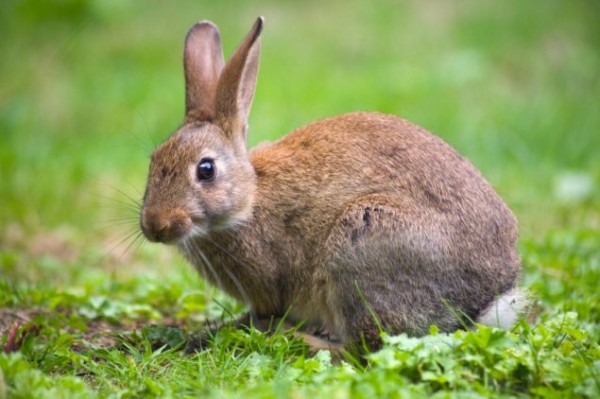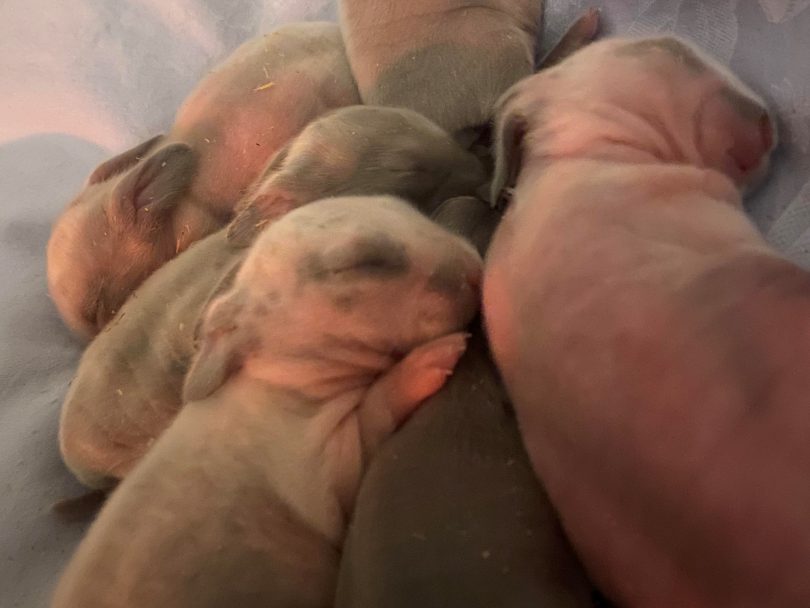
Tyshana Devine’s three-year-old daughter, Barbara, is heartbroken at the deaths of her pet rabbits. Photo: Tyshana Devine.
The death of four beloved pet rabbits has one Canberra mother urging other owners of the mammals to beware of calicivirus in the ACT this summer.
The recent prolonged wet weather has seen wild rabbits boom in the ACT, as well as insects which can spread the deadly virus.
Palmerston rabbit owner Tyshana Devine has lost four of her family’s nine pet rabbits in the past week.
“My three-year-old asks me everyday if another rabbit is dead yet,” she says. “She just expects this is what is happening everyday.
“I’m heartbroken and my kids are heartbroken.”
Tyshana’s two adult angora rabbits, ‘Baby Girl’ and ‘Donnie’, died within days of each other.
She says the breeder she got them from has lost 15 recently.
‘Baby Girl’ had been having seizures, was lethargic and was struggling to stand up.
“She did this thing called ‘paddling’, where they lay on their side and try to get up but just can’t,” says Tyshana.
“I was in the other room and she made a sound. As soon as I walked in, she died.”

Tyshana Devine says the loss of her pet rabbits has been devastating. Photo: Tyshana Devine.
On the vet’s advice, Tyshana isolated the remaining rabbits. ‘Donnie’ seemed in good health the following day after isolation, but he quickly succumbed, too.
“As soon as he had a seizure, he died in my arms,” she says.
“With this virus, your rabbit can be fine but then dead the next minute.”
The rabbits were birthday presents for Tyshana’s four children, and she says they had all been vaccinated.
The family had also done all the right things to protect the rabbits, such as removing shoes, washing their hands and regularly cleaning equipment.
“We loved our rabbits,” says Tyshana. “They were part of our family and it is very devastating.”
Several strains of calicivirus – or rabbit haemorrhagic disease – are used to control wild rabbit populations in Australia.
It spreads through contact with infected rabbits, contaminated food, clothes, insects, rodents, cages, and other equipment.
The Canberra-based Centre For Invasive Species Solutions works with government and industry to protect Australia from invasive species.
The centre’s chief executive, Andreas Glanzig, says recent weather conditions are ripe for the spread of rabbit diseases.
“We’re in a La Nina phase, which means a lot of rainfall and therefore a lot of potential vectors such as mosquitoes,” he says.
“They can create an increased risk of disease transmission from wild rabbits to domestic rabbits.”

Wild rabbits can transmit deadly diseases to domestic pets. Photo: Supplied.
Andreas strongly recommends all owners vaccinate their rabbits.
“What it means is Canberran owners need to ensure those rabbits are protected,” he says.
“They can do that by vaccinating their pet rabbit, and they should be doing that regularly.”
The centre recommends several other measures you can use to protect your rabbits:
- Prevent contact with wild rabbits.
- Avoid cutting grass and feeding it to rabbits.
- Wash your hands before handling rabbits.
- Use insect control.
- Isolate infected rabbits.
- Clean and disinfect cages and equipment.

Tyshana Devine doesn’t want other rabbit owners to go through what her family has. Photo: Tyshana Devine.
Tyshana echoes the same advice for other rabbit owners.
“I don’t want anyone to go through what we went through,” she says.
“People say it’s just a rabbit, but that’s my best friend like it would be my cat or dog.”
If you are concerned about your pet rabbit, contact a vet or view this factsheet on minimising calicivirus infection.
Original Article published by Damien Larkins on Riotact.




